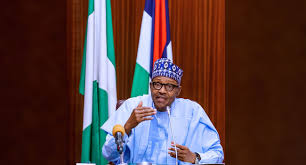In keeping with the Federal Government’s promise to improve the welfare of Nigerians, the Federal Ministry of Humanitarian Affairs, Disaster Management, and Social Development will today commence the implementation of the National Home Grown School Feeding Programme, NHGSFP, Covid-19, beginning with the Federal Capital Territory, FCT.
The new initiative is, as a result of the modification of the NHGSFP, which is now targeted at ensuring that, school pupils on the program, do not lose the nutritional gains made during the school term, due to the nationwide shut down of schools and lock down, by states, as a result of the Covid-19 pandemic.
President Muhammadu Buhari had in his last national broadcast pledged that, his government will immediately commence deployment of additional Federal Government’s human, material, and technical resources to strengthen and support the States’ government’s efforts.
In line with the President’s position, the Minister of Federal Ministry of Humanitarian Affairs, Disaster Management and Social Development, Sadiya Umar Farouq swung into action, coming up with a modified NHGSFP.
In an official statement by the Federal Ministry of Humanitarian Affairs, Disaster Management and Social Development, signed by the Ministry and Federal Capital Territory Representative, the Ministry stated that, cook sensitization will begin Monday , May 11, 2020 while voucher distribution and inspection of food items at warehouse will take place Tuesday being May 12, 2020. Voucher distribution will continue on Wednesday May 13, 2020 while the flag-off will commence Thursday, May 13, 2020.
Target beneficiaries of the exercise are households with children in primary 1-3 in public schools, with emphasis on vulnerable households whose means of livelihood is based on daily income. According to the ministry, the primary intervention will target households with children verified to be on the program; a secondary intervention will target households with children of primary school age who may not be on the program but whose caregivers depend on daily earnings for living while a tertiary intervention will target households with young children and infants.
Altogether, a total of 9,026,301 children drawn from the 36 states of the federation and the Federal Capital Territory of Abuja in 3,131,971 households are expected to benefit from the programme
President Muhammadu Buhari had in his last national broadcast pledged that, his government will immediately commence deployment of additional Federal Government’s human, material, and technical resources to strengthen and support the States’ government’s efforts.
In line with the President’s position, the Minister of Federal Ministry of Humanitarian Affairs, Disaster Management and Social Development, Sadiya Umar Farouq swung into action, coming up with a modified NHGSFP.
In an official statement by the Federal Ministry of Humanitarian Affairs, Disaster Management and Social Development, signed by the Ministry and Federal Capital Territory Representative, the Ministry stated that, cook sensitization will begin Monday , May 11, 2020 while voucher distribution and inspection of food items at warehouse will take place Tuesday being May 12, 2020. Voucher distribution will continue on Wednesday May 13, 2020 while the flag-off will commence Thursday, May 13, 2020.
Target beneficiaries of the exercise are households with children in primary 1-3 in public schools, with emphasis on vulnerable households whose means of livelihood is based on daily income. According to the ministry, the primary intervention will target households with children verified to be on the program; a secondary intervention will target households with children of primary school age who may not be on the program but whose caregivers depend on daily earnings for living while a tertiary intervention will target households with young children and infants.
Altogether, a total of 9,026,301 children drawn from the 36 states of the federation and the Federal Capital Territory of Abuja in 3,131,971 households are expected to benefit from the programme












0 Comments